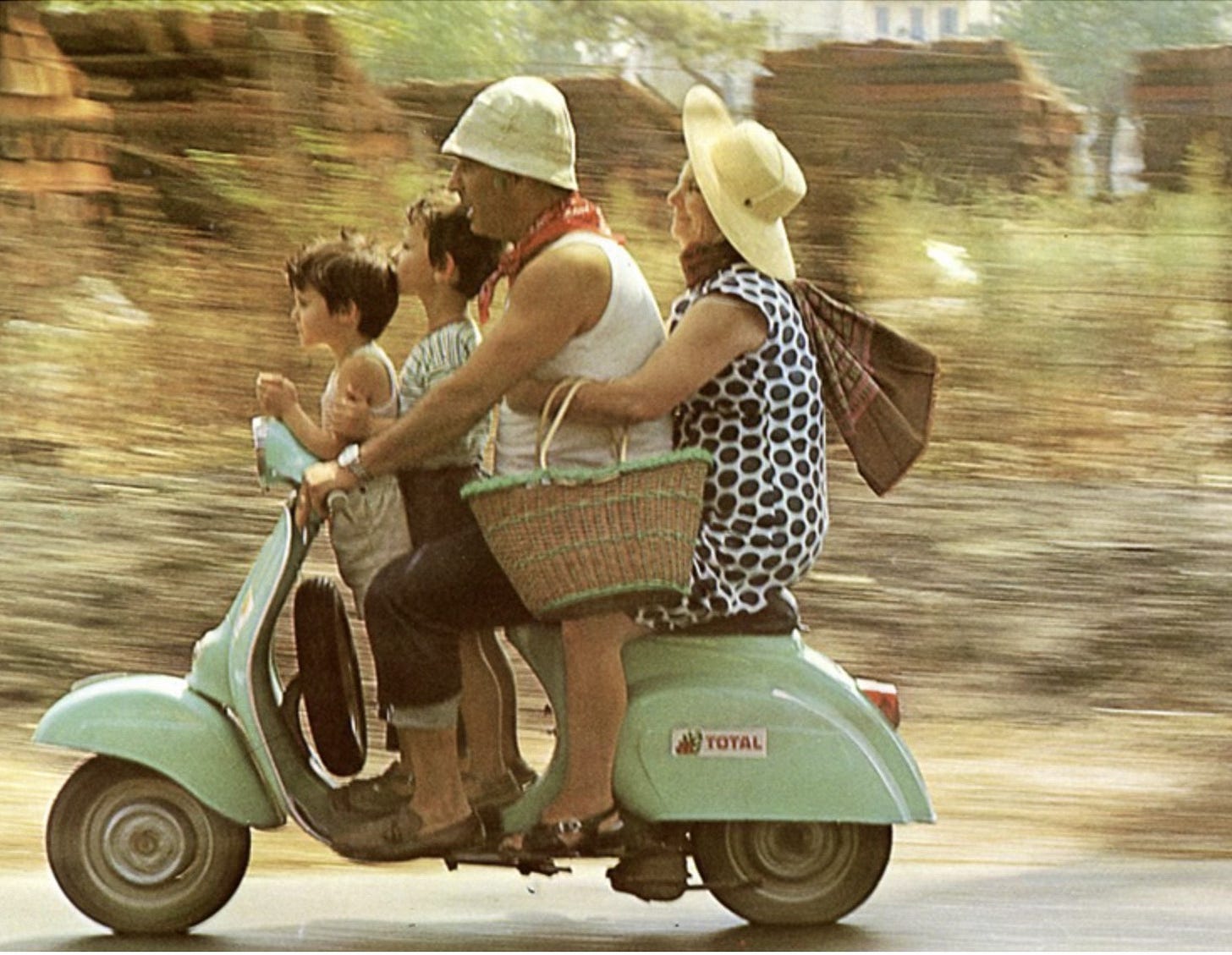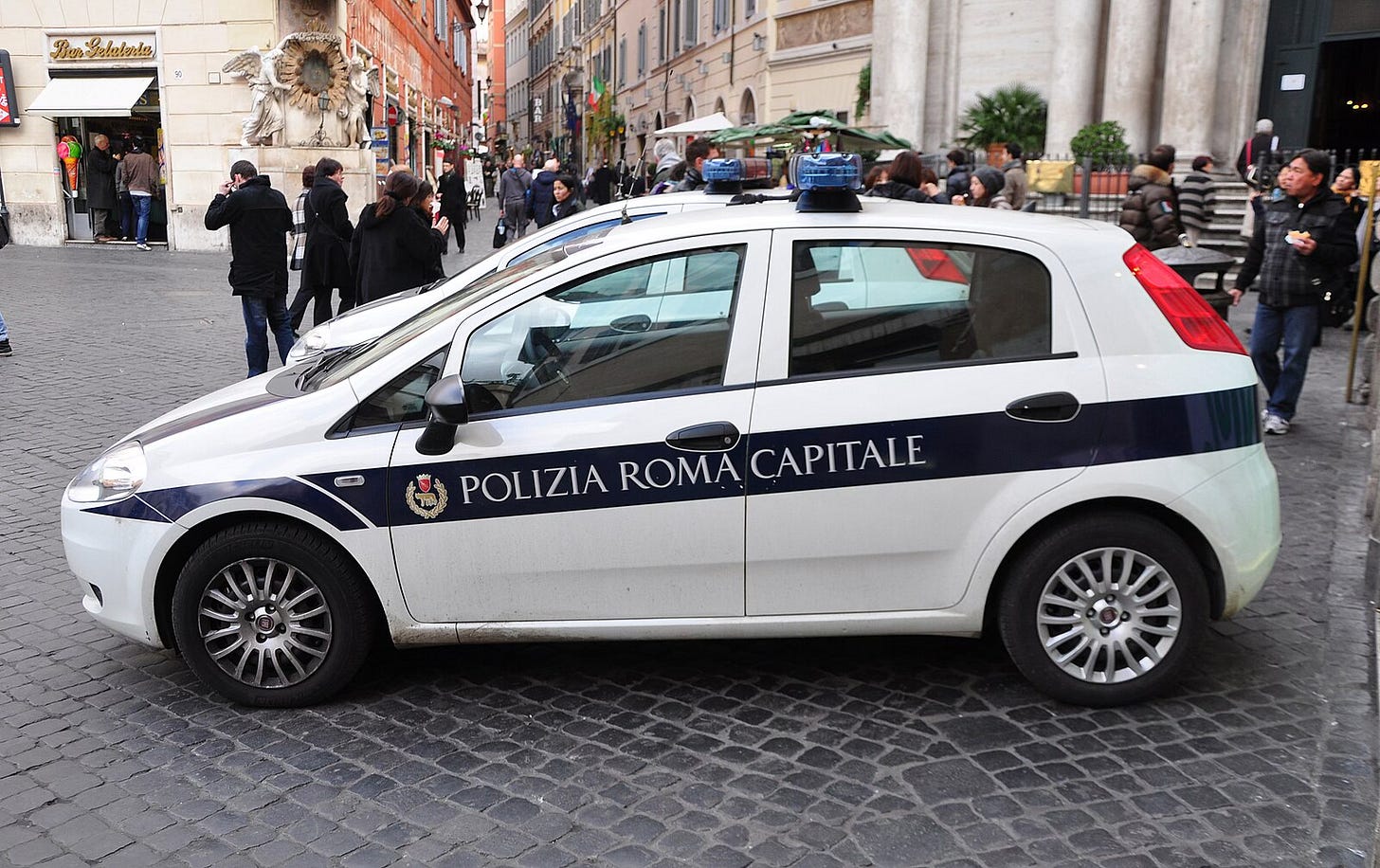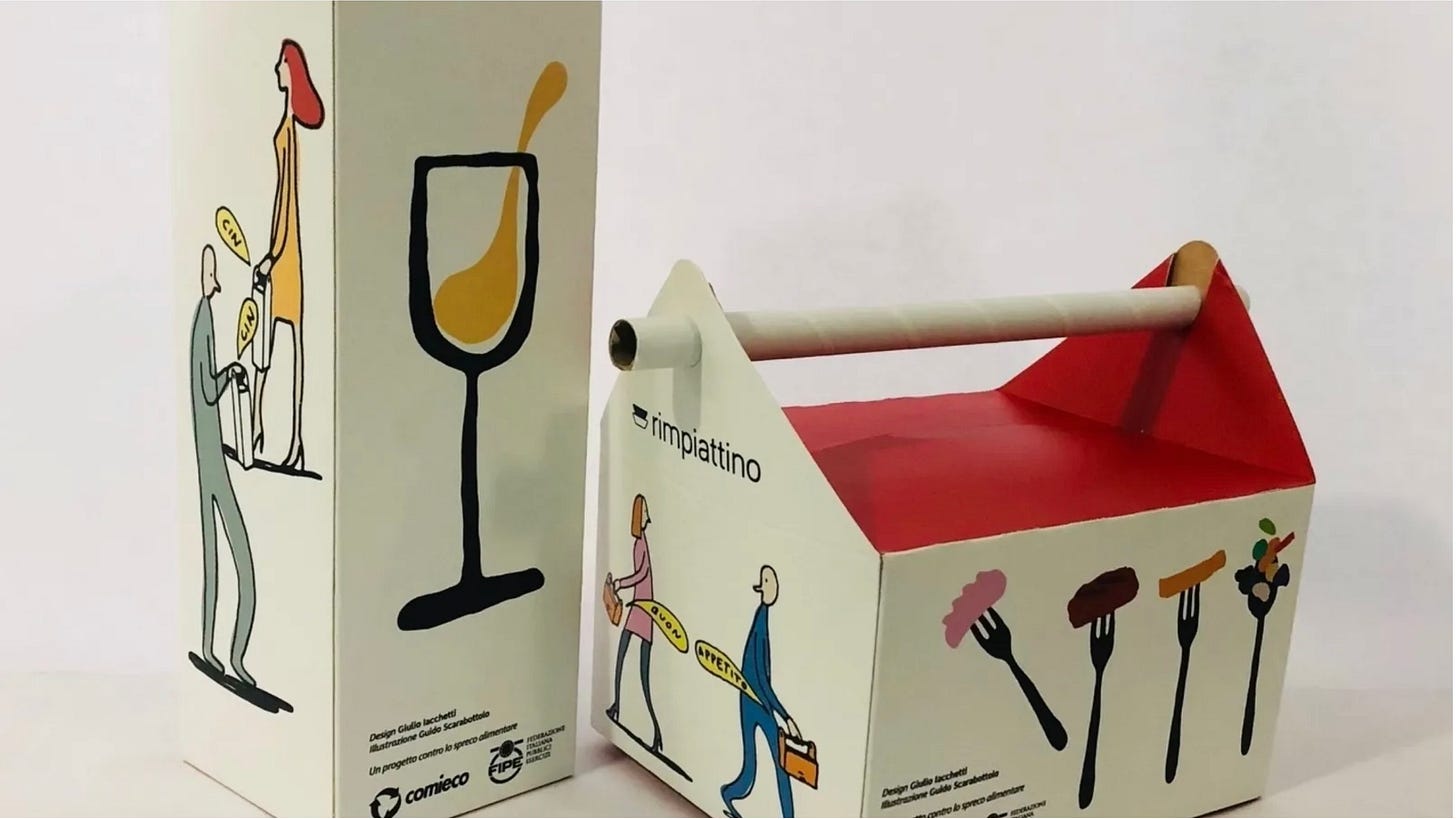How to Offend an Italian (without meaning to)
A guide to the rituals only locals know -- and the timeless art of making do
I had a strategy for my first “splurge meal” in Italy.
I was in a short-term rental near the Vatican, where there was an osteria that was too tempting to ignore forever. But after an expensive move halfway around the world, I was on a tight budget. My meals were mostly simple pastas prepared in my tiny kitchen, with an occasional panino or slice of pizza al taglio when I needed a break.
Then came a small victory: an editor gave me my first green light on an Italy story pitch. I decided to celebrate.
I ordered a bistecca di manzo with a side dish -- nothing extravagant, but for me, a treat. The plan was simple: eat half that night, save the rest for the next day. So, between savory bites of steak, I filled up on bread and grissini. When I was halfway through, I told the waiter I was full and couldn’t possibly finish. Would he bring me a bag to take the rest home?
“A bag?” he repeated.
I’d only just started taking Italian classes. “Si, a bag. Or a box. For food.”
“Bag or box?”
“Si, per favore. Conoscere ‘doggy bag?’”
A look of recognition lit up his face. “Ah, si, si -- doggy bag.” He whisked my plate away and I began to imagine the steak sandwich I’d have for lunch the next day.
A few minutes later, he returned with a proud smile and a plump bag full of bones and other assorted kitchen scraps. He handed it to me.
“For you dog,” he said.
And that’s how I learned one of the many unwritten rules of Italian culture: doggy bags are not a thing.
In Italy, meals are about the experience, not just the food. Taking leftovers home can seem gauche, even insulting -- as if you didn’t understand how much food you wanted to eat, or didn’t appreciate what was served.
A lack of respect
One of my favorite phrases in Italian is l'arte dell'arrangiarsi -- the art of making do.
It helps explain why public works projects rarely finish on time (or under budget), or why a “completely full” restaurant can still find a table if they know you, or if you ask just right. It’s why crumbling ruins can become impromptu concert venues or why you might see someone transporting lumber, mattresses, crates -- even entire families -- on a motorino.
L'arte dell'arrangiarsi helps fuel the stereotype that Italy is a care-free, make-it-up-as-you-go-along culture. But the truth is almost the opposite. Italy is full of rules -- it’s just that most aren’t written down.
Here’s an example I first shared on Termini TV: A few years after the doggy bag incident, I was on my motorino -- alone, no unusual cargo -- when I came to a red light. It was late, nobody was crossing. So I drove through.
A police siren immediately blared. I was pulled over.
Two officers got out. The older one, his hands pressed together as if in prayer, scolded me: “Ma questa è una mancanza di rispetto!” he declared -- “But this is a lack of respect!”
He wasn’t angry that I ran the light -- he was upset that I did it right in front of his police car. Another unwritten rule.
I handed him my documents, and he checked to see if I’d been drinking. “You seem like a bright young man,” he finally said. “Why would you go through a red light right in front of a police car?”
I told him I hadn’t realized what I’d done. “In the corner of my eye, I saw a white car with something on the roof,” I said. “But I thought it was a taxi.”
The younger officer chuckled. “Dai capo!” he said. “C’mon boss, he thought our car was a taxi.”
The older one looked at me intensely. “Is this true?” he asked.
I swore it was. After a pause, he dismissed me with the wave of his hand: “Vai!”
Invisible dos and don’ts
• If you ask an Italian to do something and they say vediamo -- we’ll see -- don’t count on it. It’s almost always a gentile way to say “no.”
• At fruit and vegetable markets, don’t touch the produce unless it’s clearly allowed. Instead, tell the vendor what you want and let them handle it. If you brought a reusable bag, hand it to them before making your selection.
• There’s a social principle called ritardo strategico -- strategic lateness. Arriving right on time seems too eager; too late is disrespectful. The sweet spot depends on context, but in Rome, aim to show up around 20 minutes late when invited to dinner at someone’s house.
• At dinner, refuse second helpings the first time they’re offered, even if you want more. It’s polite and it gives the host the pleasure of insisting.
• Then there’s the concept of the bella figura, which isn’t just about vanity and dressing well. It’s about social cohesion, mutual respect, and abiding by all the unwritten rules.
What are some of your favorite unwritten rules? Italians, expats, Italy lovers -- drop them in the comments.
Eat me
For a long time, I felt like I was always a step or two behind in the choreography of everyday Italian life.
But like learning a new language, the rhythms gradually began to make sense. I learned to read the tilt of a waiter’s head, the raise of a barista’s eyebrows, the theatrical shrug of someone explaining why the train suddenly stopped far from any station.
Now, after more than two decades in Rome, I never enter a shop (even outside Italy) without greeting the shopkeeper. I sometimes wish English had a word like Lei -- the formal you that creates respectful distance.
I find it rude when a restaurant server drops the check before I asked for it. I don’t talk in crowded elevators. I avoid discussing money or politics with people I don’t know well. Outside of tourist areas, I don’t expect most businesses to stay open at lunchtime. And don’t get me started on the question of tipping.
I don’t agree with all of it. Consider colpi d’aria -- the dreaded drafts of air Italian blame for everything from stiff muscles to headaches and from sore throats to red eye. Don’t ask for ice in your drink, even this time of year. And under no circumstances should anyone who wants to remain healthy go outside without first drying their hair.
But like everything else, even these rules are evolving.
Take leftovers. It’s still not as common to bring food home as in many other countries, but it’s no longer the tabù it once was. Campaigns against food waste have helped soften attitudes -- one well-known campaign was called “Doggy Bag: Se avanzo mangiatemi” (it sounds weird in English: “Doggy Bag: If I’m left over, eat me”). Rising prices have also played a role: price-conscious diners have begun seeing leftovers as practical, not tacky.
There’s no fixed checklist for this stuff. These are quiet lessons: some embarrassing, some frustrating, some unexpectedly sweet. I still get things wrong all the time. But I think that’s part of it, part of the art of making do.
Am I doing it right? Vediamo.
.
📌 And another thing:
I purposely avoided mentioning Italy’s best-known unwritten rule: no cappuccinos after late morning, which is not entirely accurate and has become something of a cliché. But there are plenty of other things to discuss when it comes to Italy’s most popular morning ritual.

One piece of advice I give to coffee drinkers just settling into life in Italy is to come up with an unusual coffee order they enjoy. Mine is caffe macchiato al vetro.
My main reason is that in a traditional porcelain cup it’s hard to know how much milk they’ve added. If I can’t see, it’ll be half gone before I realize it. But a secondary reason is that the order is more memorable. I’m a big coffee drinker, and I’m quietly pleased that there are at least half a dozen coffee bars in Rome where the barriste know my order when I walk in.
Come back for another dispatch next week.





Another unwritten rule: don't go to church or the opera dressed as if we were going to the gym...
I had an old professor at university in Rome who would take a break halfway through class (a 5 hour studio art course) to go down to the bar to have a cappuccino at 5 pm. It was his merenda and all the women at the bar knew to have it ready when he arrived.
I also had a colleague who would have a cappuccino in place of eating at lunch everyday. It seems that you can have a cappuccino at any time, but it’s a substitute for eating!